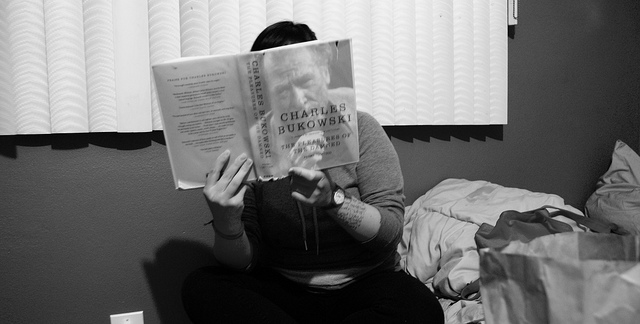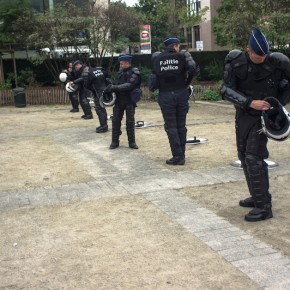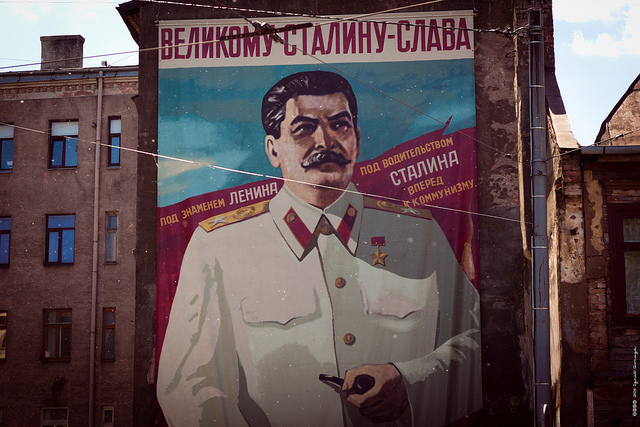It seems like a long time ago, when rebellious poets lashed out against a takeover of the field by academics who, according to the familiar curse, “had everything but an audience.” They were trying, in part, to return poetry to its popularity in the early twentieth century–think of Carl Sandburg’s large following when he was only years from his socialistic journalism—before modernism turned most radical poetry inward.
Along with the upward 1960s trajectory of the anti-war and civil rights movements, black power and the counterculture, came poetry readings to highly political audiences or poetry segments of rallies. The more political-minded of the Beats veterans joined younger men and women on stage, and the underground press rushed to bring the message to tens or hundreds of thousands who has never gone to a poetry reading or bought a poetry book, and very likely never would.
The most improbable figure amidst this radical wave was doubtless Charles Bukowski, more than a generation older than his audience. Arguably also more blue collar in his outlook as well as a personal history of casual labor, he was hardly political. He disparaged war, the military, bosses, the government and….women who did not crave him. To take Bukowski at his poetic word, it was racetrack bets and whores drawn to winners that gave him his chief thrills. And drinking. Later, as he became a cult figure, Bukowski took to repeating himself with considerably less verve in prose or poetry. He once referred to California novelist John Fante as his God, which explains the rest of the book’s title.
Still, in the era of poetry slams (we seem to have been in that era for quite some time), “Buk” possesses a name, even if possibly for the wrong reasons. Thus Fante Bukowski, Noah Van Sciver’s saga of a young lawyer (in the family firm) who breaks loose in his craving to write and be successful, would become a Bukowski. He is, instead, an impossible failure, an apparently talentless pretender who can only land a contribution in the most obscure of spots, and realizes that he has unintentionally written a whole novel ripping off (or rather, intending to rip off) a Milan Kundera plot. He does land a fellow sufferer, a young woman who is equally unable to achieve any success, but puts up with him, even going to bed with him.
This is a new entry in Van Sciver’s cast of characters who up to now have included mostly young guys who can’t make their way in life, and of all improbabilities, a realistic young Abraham Lincoln so depressed that he contemplates suicide. Van Sciver has drawn a bead on depressives, obviously. His idiosyncratic drawing style, ramped up with a vivid use of color, consistently retains its distance from, say, comic art realism or the variety of overly familiar styles still holding on in the newspaper funny pages.
Van Sciver’s fictional Fante experiences disappointment after disappointment with a rising sense of despair, and a bar room buddy who resembles one of the real Bukowski’s boozed up personalities embittered at the modern world and its illusions. Beyond all this, and only arriving in the last pages, is the science fiction-like sense of wonder at trees and sky that obviously possesses the artist, a Blakean sensibility that runs ahead of his narrative but carries a kernel of redemption.
Is Van Sciver telling us something about art and tragedy? As in my own favorite Bukowski excerpt:
I shaved carefully with an old razor
the man who had once been young and
said to have genius; but
that’s the tragedy of the leaves,
the dead ferns, the dead plants;
and I walked into a dark hall
where the landlady stood
execrating and final,
sending me to hell,
waving her fat, sweaty arms
and screaming
screaming for rent
because the world has failed us
both
Or is Van Sciver pointing us past the despair, toward something that his art allows him to discover?
Paul Buhle’s 1960s magazine, Radical America, published Bukowski and a handful of other radical poets, both in its pages and in special booklets.
Photograph courtesy of navarrd. Published under a Creative Commons license.





